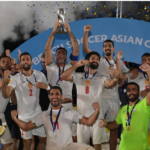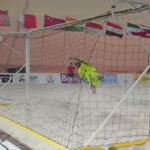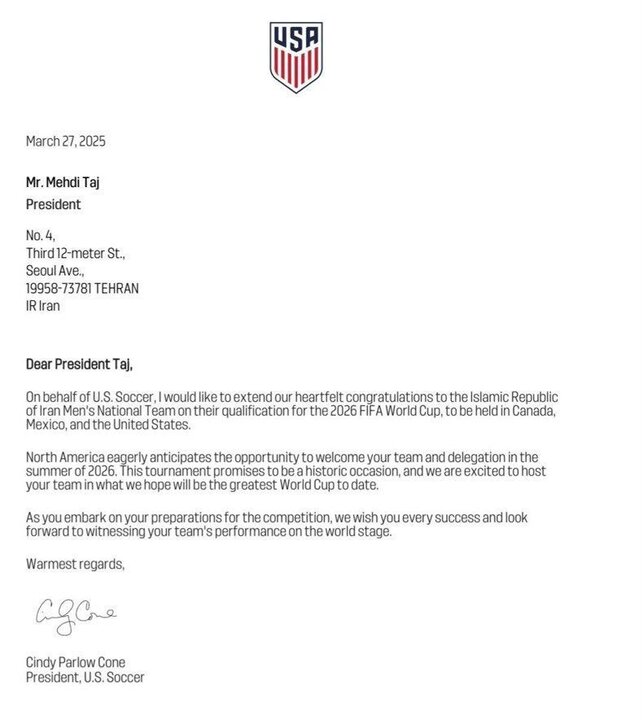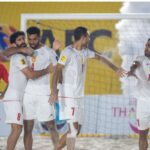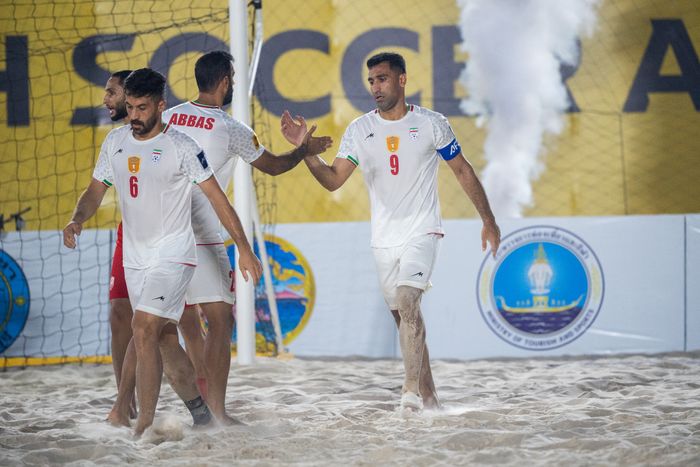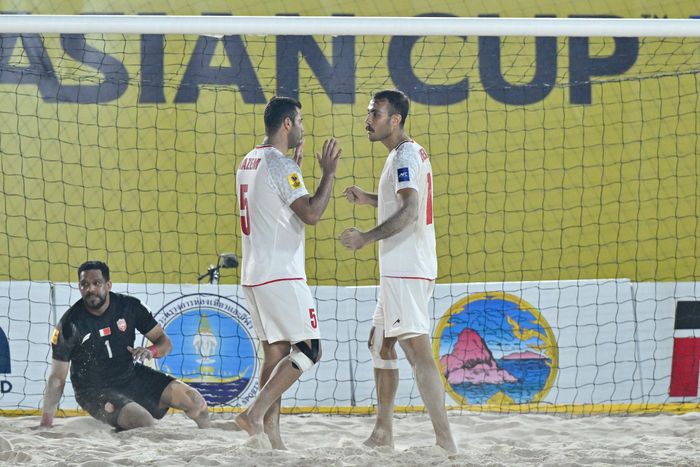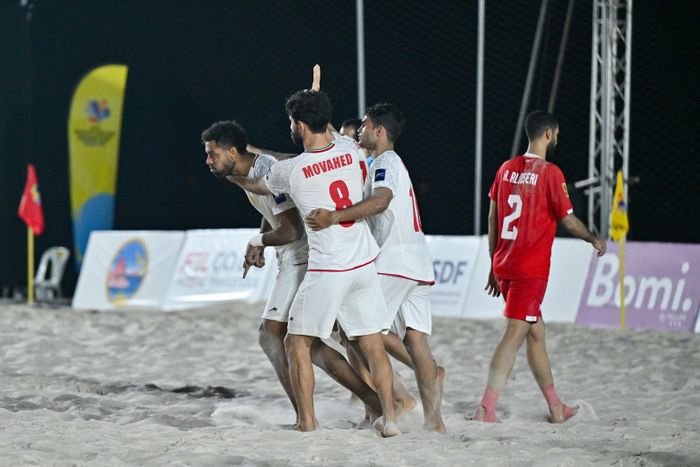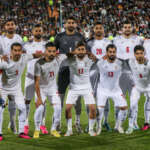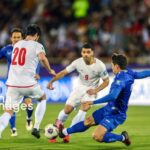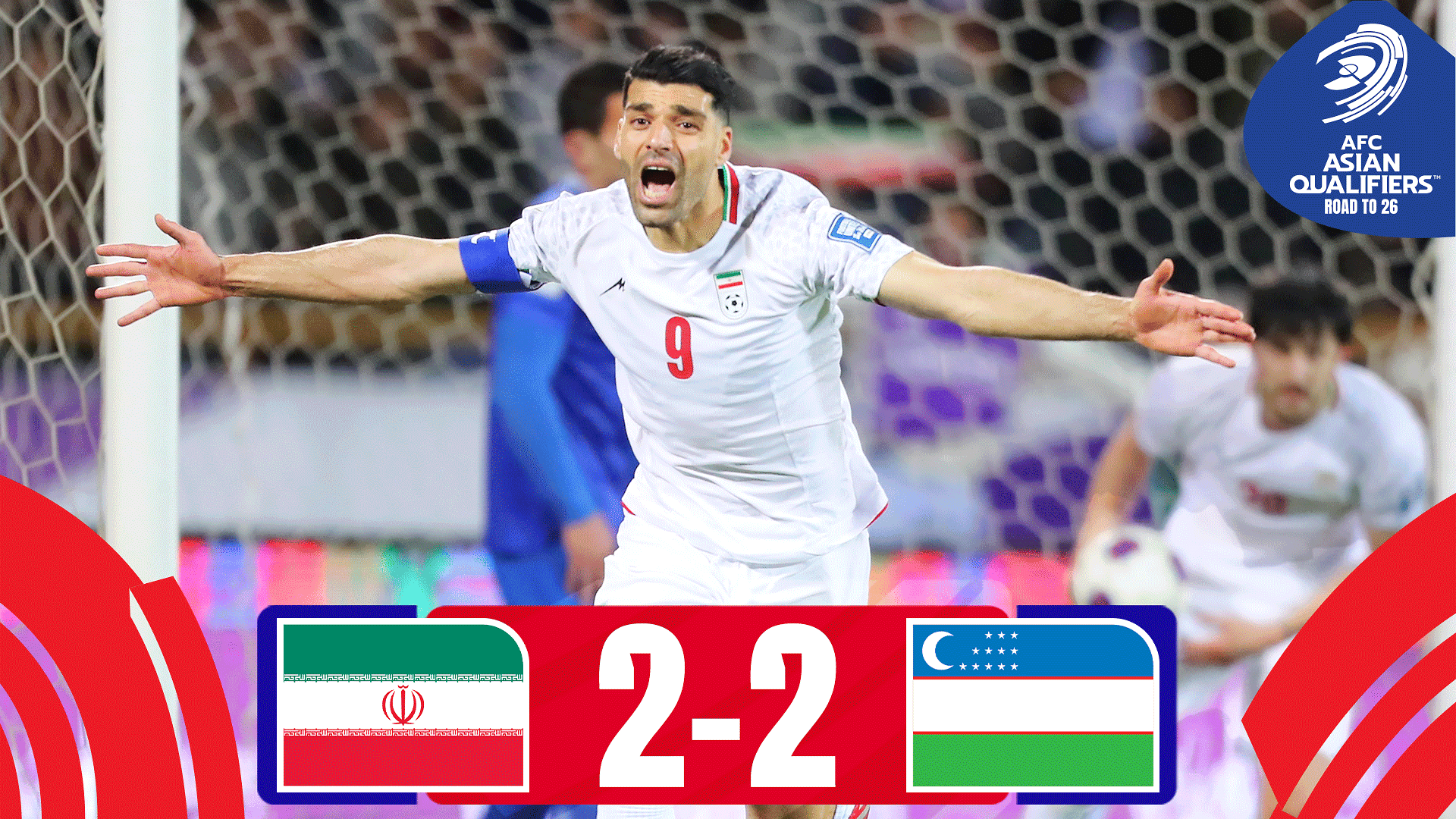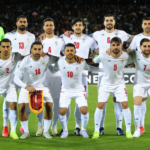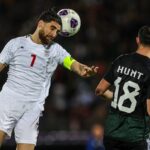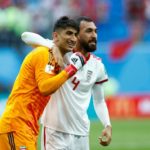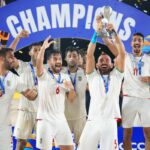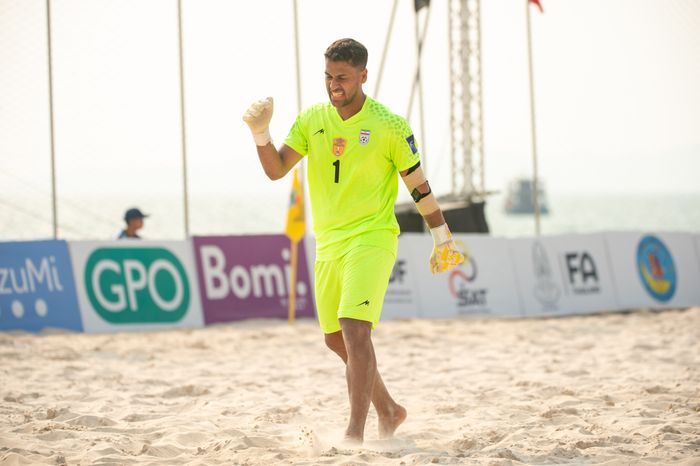The-AFC.com
Pattaya:
Iran reigned supreme again at the AFC Beach Soccer Asian Cup™ after they defended their title with an 8-1 win against Oman in the Thailand 2025 final on Sunday.
It was a historic occasion for Iran as they not only emerged back-to-back champions for the first time but Sunday’s triumph puts them ahead of Japan as the only four-time champions.
.jpg?d=700x0)
The first period settled into a pattern from the opening whistle with Iran dominating possession while Oman looked to hit on the counter.
Oman custodian Younis Al-Owaisi had to be alert to block efforts from Mahdi Shirmohammadi and Movahed Mohammapour before his opposite number Seyedmahdi Mirjalili pushed away an attempt from Nooh Al Zadjali.
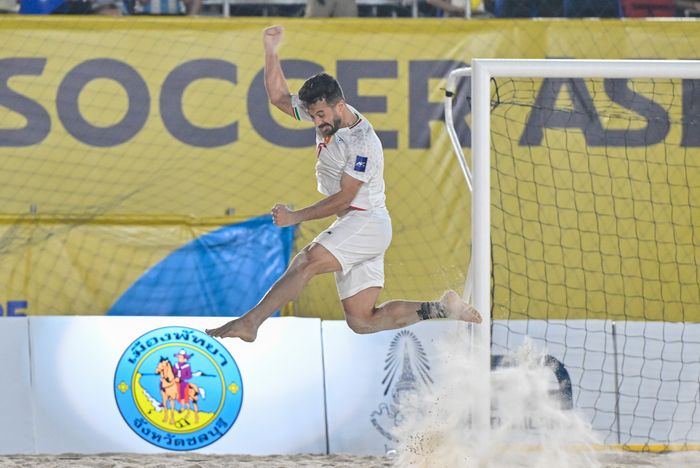
Iran found the breakthrough a minute before the end of the first period when Seyedmohammad Dastan’s long range effort was saved by Amjad Al-Hamdani but Shirmohammadi leaped high into the air to nod home the rebound.
The defending champions stepped up another gear in the second half, doubling their lead in the 15th minute after Reza Amiri smashed a free-kick home with the final bounce off the sand taking the ball away from the gloves of Al-Owaisi.
.jpg?d=700x0)
Iran made it 3-0 two minutes later, Movahed Mohammadpour with a beautifully executed overhead kick that ended up in the top corner of Oman’s goal.
Despite holding a substantial lead, Iran were relentless in pursuing more and duly added to their advantage in the 18th minute when Seyed Nazem steered a first-time effort home before Ali Mirshekari blasted in two minutes later with a free-kick.
.jpg?d=700x0)
Oman pulled a goal back seconds later after Sami Al Bulushi was left unmarked at the far post to sweep home but the 2015 champions conceded another in the 22nd minute with Mirshekari getting his second in the game.
The final period saw a battling performance from Oman but it made little difference with Iran’s Mohammadali Mokhtari adding to the score in the 32nd and 36th minutes to cap the emphatic win.
AFC BEACH SOCCER ASIAN CUP
ROLL OF HONOR
| Team | Titles | Runners-up | Third place | Fourth place | Total |
|---|---|---|---|---|---|
| 4 (2013, 2017, 2023, 2025) | – | 5 (2006, 2007, 2008, 2011, 2015) | 1 (2009) | 10 | |
| 3 (2009, 2011, 2019) | 6 (2006, 2007, 2008, 2013, 2015, 2023) | 2 (2017, 2025) | – | 11 | |
| 2 (2007*, 2008*) | 2 (2017, 2019) | 1 (2013) | 2 (2011, 2023) | 7 | |
| 1 (2015) | 2 (2011*, 2025) | 3 (2009, 2019, 2023) | – | 6 | |
| 1 (2006) | 1 (2009) | – | 1 (2007) | 3 | |
| – | – | – | 2 (2006, 2008) | 2 | |
| – | – | – | 2 (2015, 2017) | 2 | |
| – | – | – | 1 (2013) | 1 | |
| – | – | – | 1 (2019) | 1 | |
| – | – | – | 1 (2025) | 1 |

